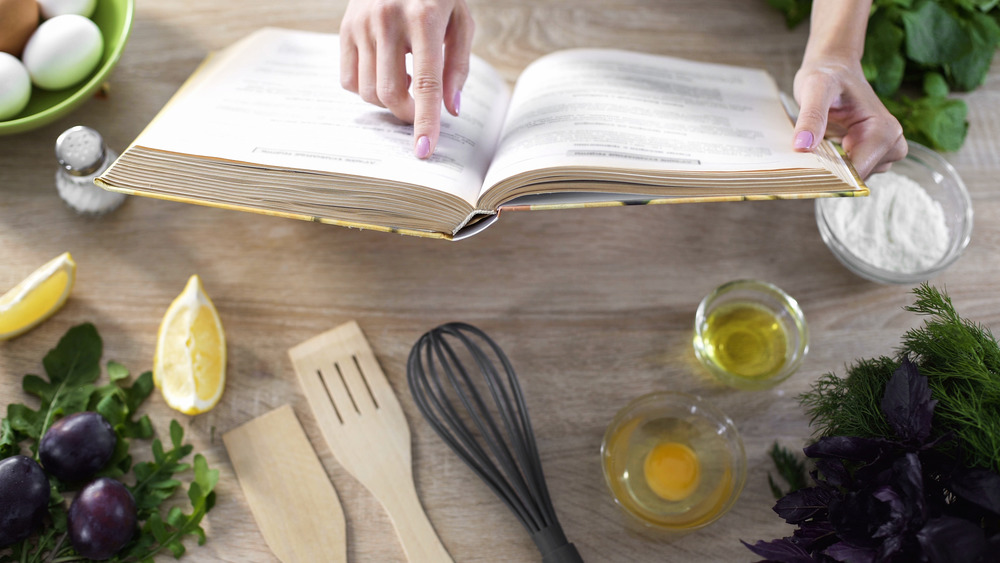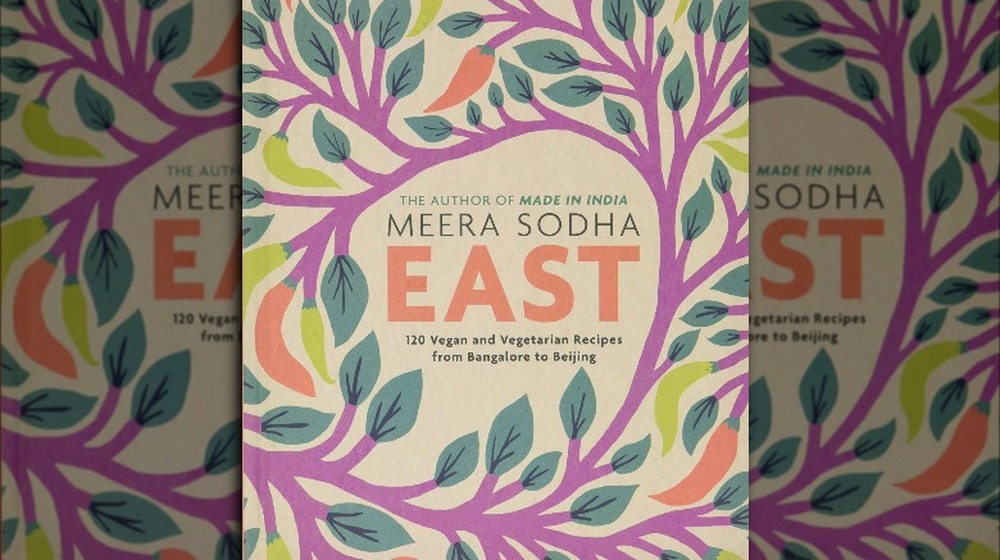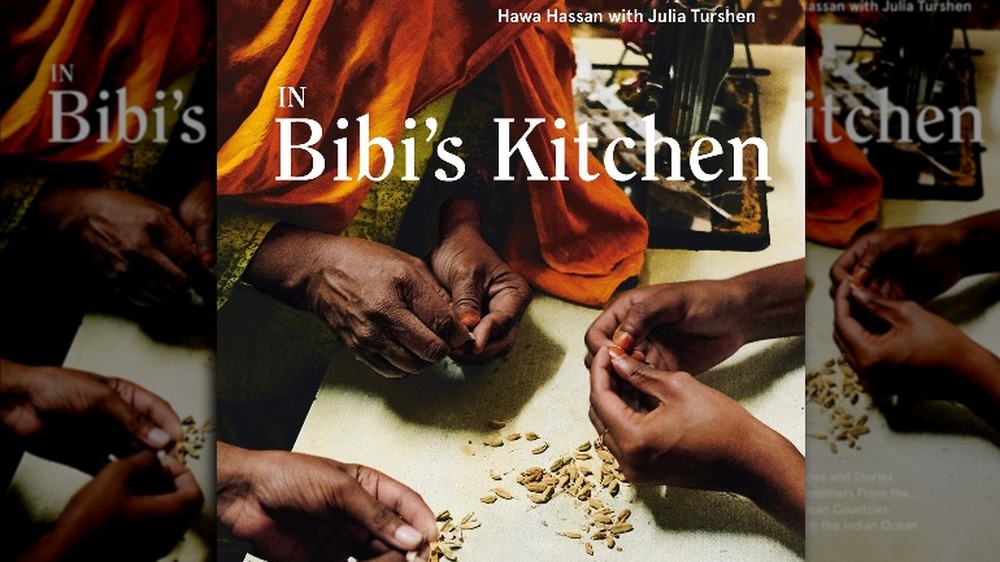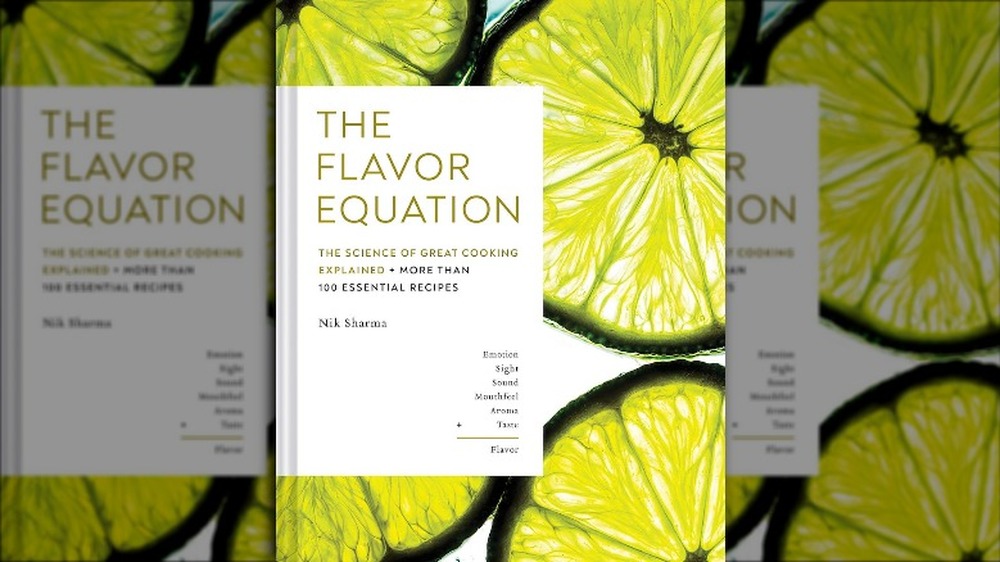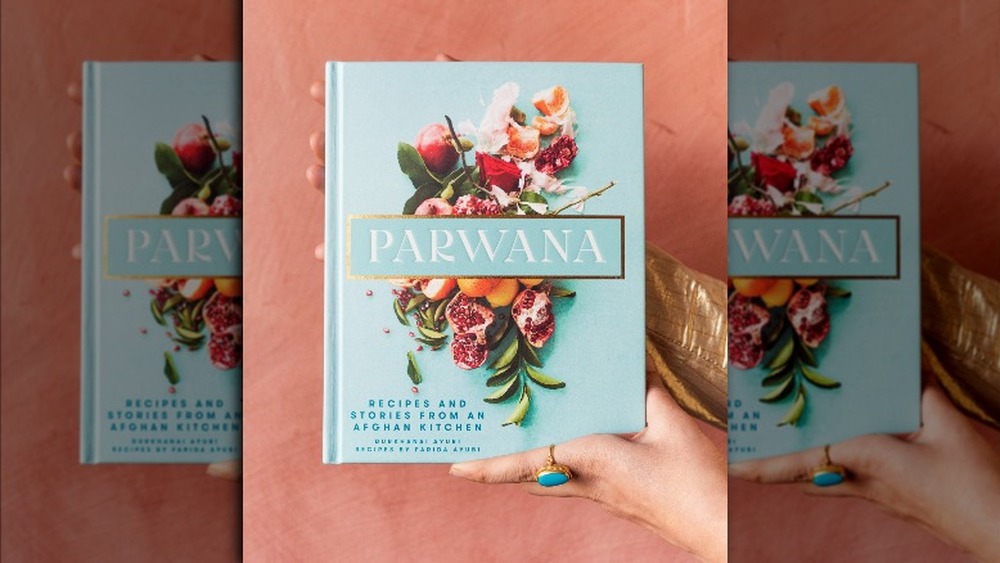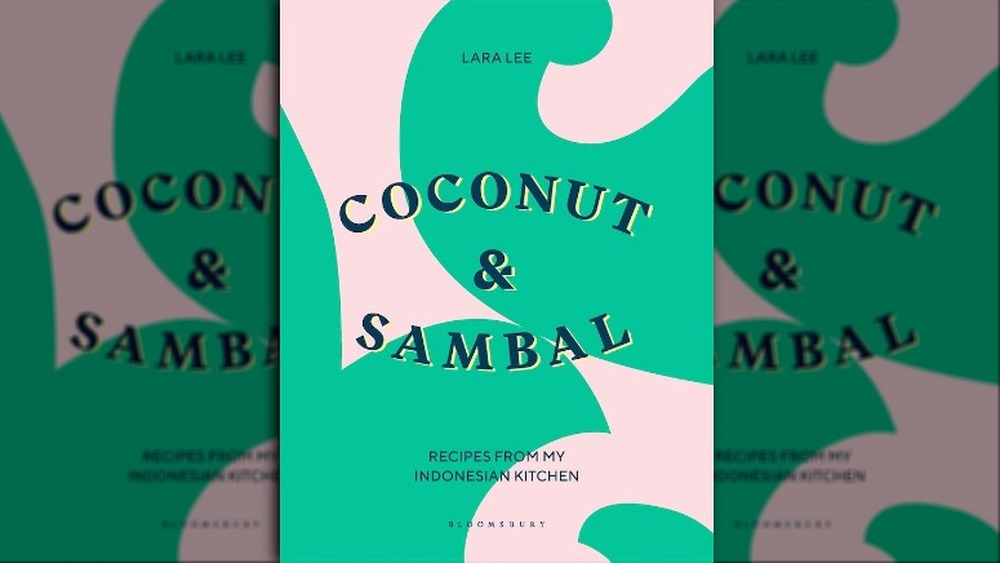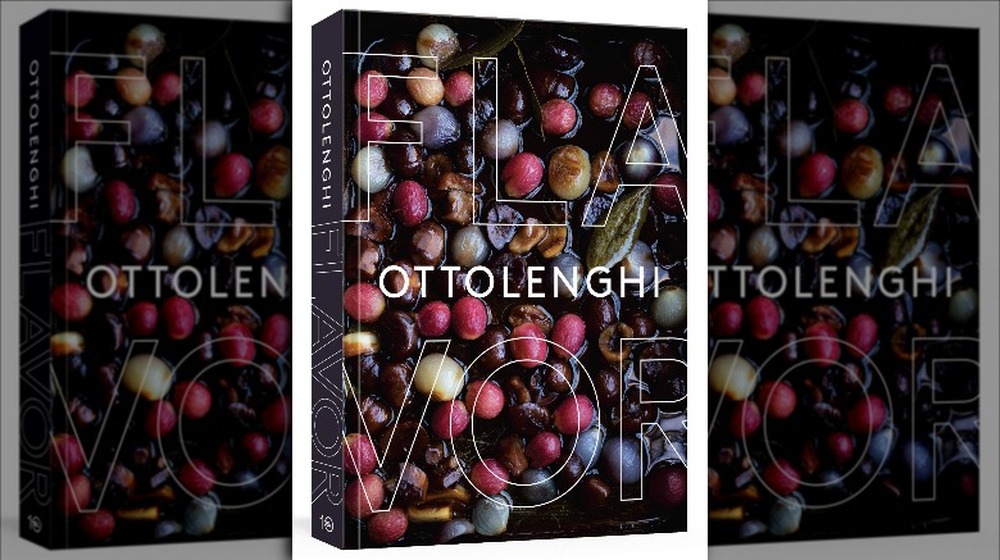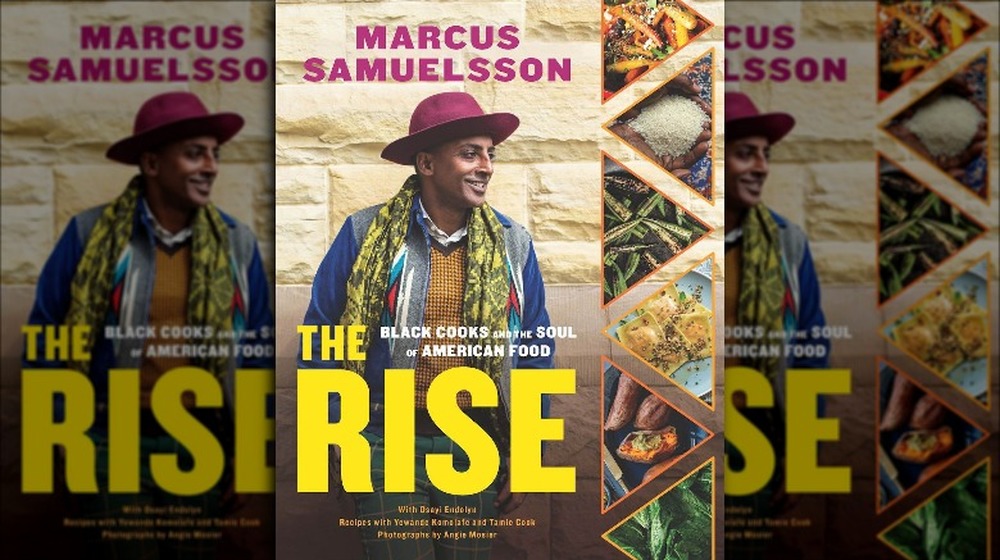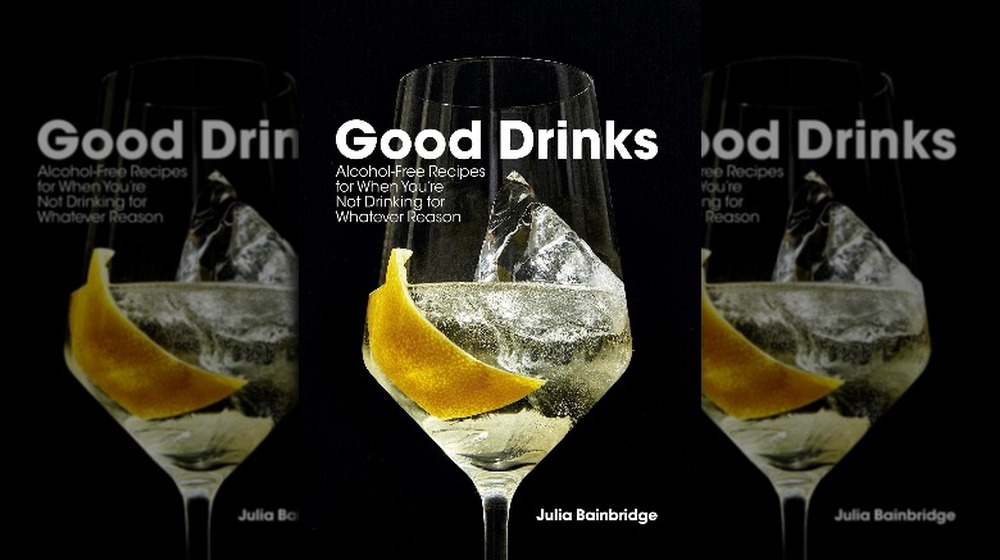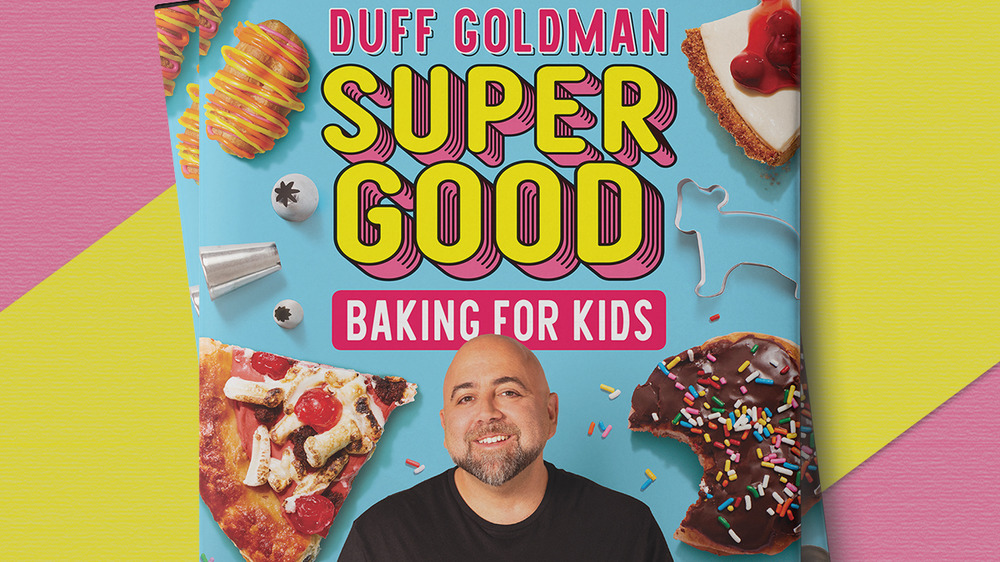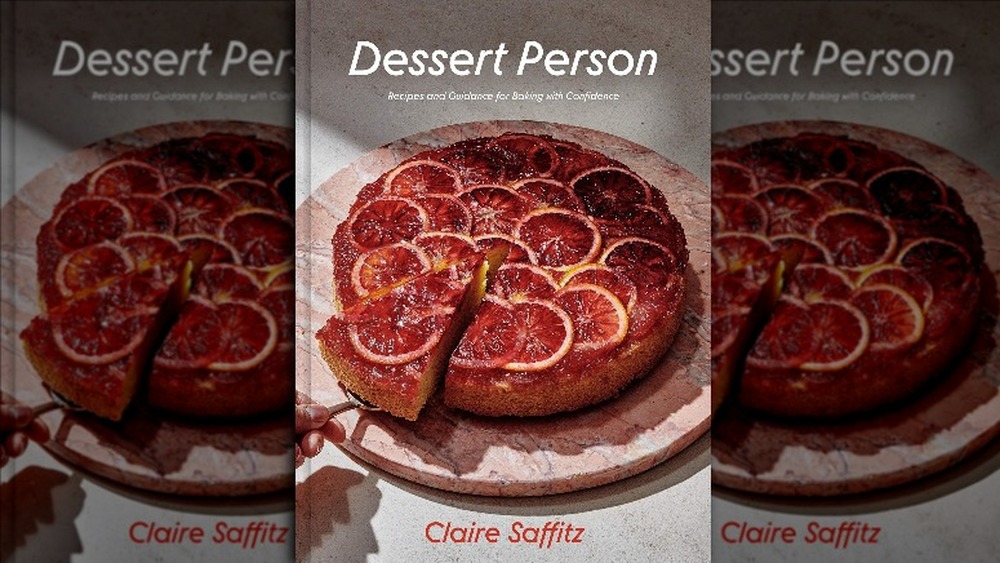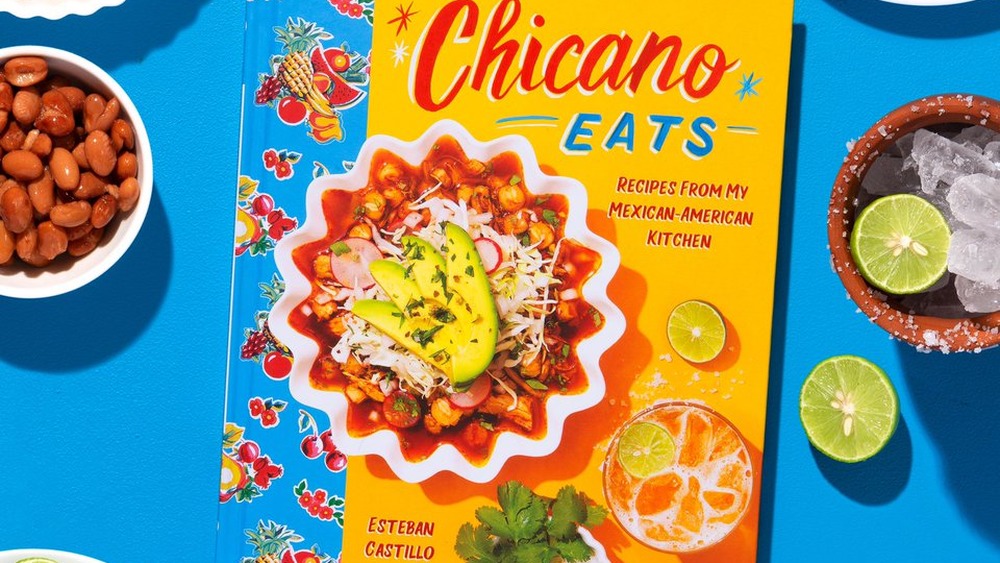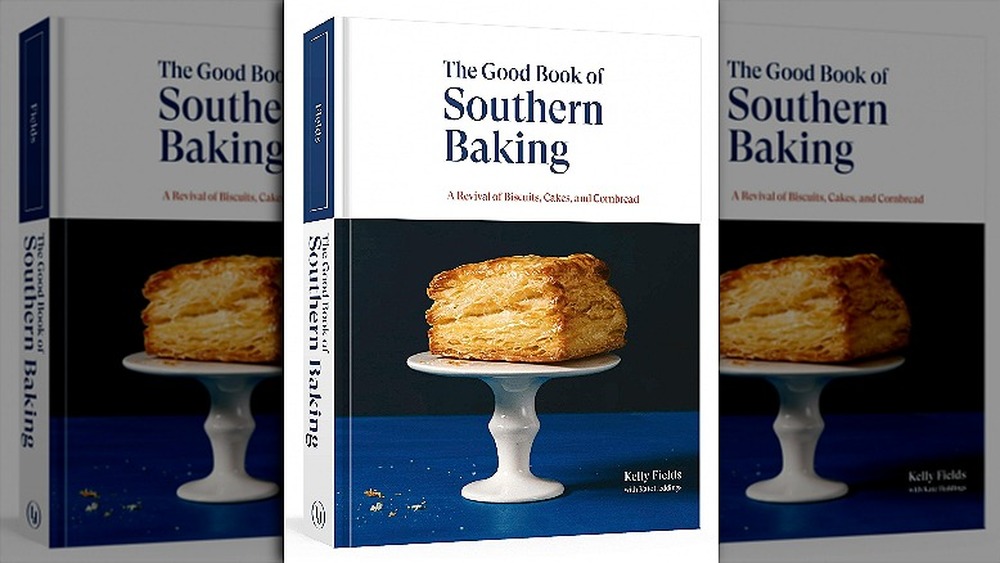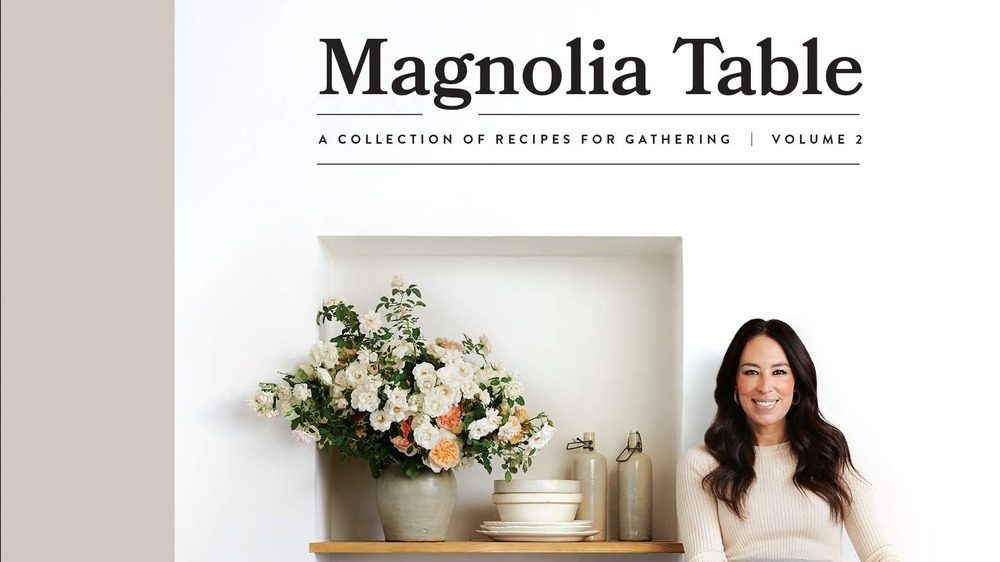The Best Cookbooks Of 2020
We may receive a commission on purchases made from links.
The holidays are approaching faster than anyone can really believe, and in a year maybe a little too full of home cooking, cookbooks are the perfect gift for just about anyone — what better way to inspire the burnt-out cook or encourage a hesitant one? Luckily, it's been a big year for cookbooks, so it won't be difficult to find something for every kind of chef in your life. From vegan Asian cuisine to Southern baking treats to Indonesian sambal, this wide assortment of cuisines will help you hone your cooking skills and refine your palate.
After such a long year, we're all looking hopefully toward 2021. Each of these cookbooks offers both the promise of future gatherings around the table, as well as a reflection on the journeys we each made to arrive there. All food tells a story, and these narratives are as distinct as they are genuine, broadening our understanding of the culinary landscape and the culture as a whole. The recipes in these books will give you something to celebrate and a way to do so deliciously.
East by Meera Sodha
Meera Sodha's vegan tome, East, was published in the United Kingdom in 2019, but the US didn't get it until October of 2020. Sodha, a columnist for The Guardian, wasn't vegan when she started writing vegan recipes, but her experience writing Fresh India, her second cookbook, gave her knowledge about vegetarian cooking she could apply to this new challenge. She also thought her relative naiveté could be an opportunity to approach vegan cooking with a fresh outlook (via The Guardian).
The result is 120 simple, mostly vegan dishes easy enough that you — yes, you — can whip them up for a weeknight dinner. According to Women's Health, the ingredients Sodha utilizes are common enough that you likely already have them in your fridge or pantry. To let these ingredients shine, Sodha employs techniques and flavors from different regions across Asia, so you'll find all kinds of dishes, from Taiwanese bao buns to Sri Lankan cakes.
In Bibi's Kitchen by Hawa Hassan
Author Hawa Hassan, alongside Julia Turshen, of the new African cookbook, In Bibi's Kitchen, says her "ultimate goal in life is really to tell an accurate and beautiful story about the continent, not one of despair" (via Vogue). With its mix of recipes and stories, Hassan is well on her way to achieving that goal with this highly acclaimed book.
Each of the 75 recipes in In Bibi's Kitchen originates from matriarchs in one of eight African countries near the Indian Ocean: Eritrea, Kenya, Somalia, Tanzania, Mozambique, South Africa, Madagascar, and Comoros. Many of the meals here are vegan or vegetarian and utilize dried beans and peas, leafy greens, and a wide array of spices (via New York Times). With these recipes, and the stories of the mothers and grandmothers who created them, Hassan and Turshen amplify the voices of an underappreciated culinary region whose dishes resist simplification while still being relatively easy to make at home.
The Flavor Equation by Nik Sharma
Nik Sharma's second cookbook, The Flavor Equation, published in October of 2020, riffs on themes similar to those in Season, his first book, but here he expands on the science behind those Indian, Californian, and Southern flavors. The Flavor Equation is a collection of over 100 original recipes and photographs, alongside diagrams that put Sharma's background as a molecular biologist front and center.
"A lot of what's happening on the stove or in the oven, or when you're chopping something, at those different points involve different chemical and physical reactions," Sharma told Modern Farmer. "I think highlighting those things makes you a wiser cook." Learning the science behind what you cook can help you hone your culinary skills and tinker with recipes without ruining them.
Though this cookbook relies heavily on science to explain the processes for each recipe, Sharma also outlines elements of cooking you might not expect from an expert. He describes the way we consume food using senses beyond taste, such as sight, smell, sound, and texture, according to Eater, and sensations beyond senses, such as emotions and memories.
The dishes themselves aren't too complicated. Novice cooks will appreciate the simple instructions Sharma provides, and experts will learn why certain techniques work — there's definitely something here for everyone.
Parwana by Durkhanai and Farida Ayubi
Durkhanai Ayubi's first cookbook was derived from recipes she cooks at her family's Afghan restaurant, located in Australia. "I see the book as an extension of our restaurants," she told Rose and Ivy. Parwana contains recipes that have been cooked by Ayubi's family for generations, from chutneys to Afghan pastas. Ayubi folds personal and national history into these dishes, telling the story of one family among many in a war-torn nation with a rich — and largely dismissed — culture all of its own. Ayubi's story spans from 1987, when her parents fled Afghanistan during the Cold War, to present-day Australia, where the family restaurant aims to give diners a glimpse of the hospitable nation they were forced to leave behind (via Barnes and Noble).
"So much of this book was about a reclamation of our stories and a chance to extend the narratives of Afghanistan far beyond the superficialities and externalities in which it is presently held captive," Ayubi said. The recipes are delicious examples of both traditional and contemporary Afghan cuisine, but this book is about much more than just food.
Coconut and Sambal by Lara Lee
Lara Lee, author of the highly acclaimed cookbook, Coconut and Sambal, says her connection with Indonesian food began with her grandmother: "I used to watch her carve carrots, cucumbers, and vegetables into beautiful shapes, to be served alongside peanut sauce and boiled eggs in a gado-gado salad," she said in an interview in National Geographic.
The recipes here include the titular ingredients — sambal is a popular Indonesian chili sauce — and many more from which Lee guides you through everything from snacks to main courses. Some of these recipes, like many of the beef-based dishes that call for the meat to be stewed rather than browned, require non-Indonesian chefs to throw their "culinary techniques out the window," Lee writes.
"I wanted the recipes to be my love letter to Indonesia, and to reveal another side to it," she said (via National Geographic). Though Indonesia contains over 17,000 islands, the nation remains relatively unknown — besides the sandy beaches and yogis of stereotypical (and reductive) portrayals — to much of the Western world. With Coconut and Sambal, Lee shares the Indonesia she knows with the rest of us.
Ottolenghi Flavor by Ixta Belfrage, Tara Wigley, and Yotam Ottolenghi
Yotam Ottolenghi, the mastermind behind Plenty and Plenty More, has a new cookbook that ditches the thematic name but keeps the surplus of vegetable-forward recipes. He explains in the book that "Flavor is 'Plenty Three', if you like, or 'P3', with the three Ps — process, pairing and produce — being the key concepts for explaining what makes certain vegetable dishes taste so good" (via GQ).
The book is broken down into these three sections that make it easy to approach cooking vegetables with as much care and consideration as you'd give to a main meat-based course. In the "process" section, Ottolenghi and co-authors Ixta Belfrage, his former restaurant employee, and Tara Wigley expound on simple techniques, such as charring or browning, that can act as the backbone for many distinctly flavorful recipes. "Pairing" offers tips for how to add depth to vegetable-based dishes by serving them with different ingredients, and "produce" helps you identify the best ingredients to use in your cooking (via Penguin Random House).
The Rise: Black Cooks and The Soul of American Food by Marcus Samuelsson
"When I think about American food and the Black experience, it's almost like we were written out of the food history," Marcus Samuelsson said on NPR's Fresh Air. "Just like American history in general, it's very complex, and it's not written with people of color and Black people in mind." Samuelsson's new cookbook, The Rise: Black Cooks and The Soul of American Food, puts Black cooking — and Black history — at the forefront.
Samuelsson shares 150 recipes meant to honor Black chefs, writers, and activists — this is a cookbook that aims to express Black culture as a whole, rather than just the culinary tradition that is so often overlooked by Western society (via Marcus Samuelsson).
On NPR, he explained that people often associate certain foods with European countries, when in reality, those ingredients were imported from African nations. Belgian chocolate, for example, is not actually made in Belgium because "there's no cocoa beans in Belgium — the cocoa beans are in Ghana."
Samuelsson wants to express the fullness of a culture that has long been underappreciated, especially considering the vast range of contributions Black chefs have made to both the global and national culinary landscape. "We don't understand how complex [Black cooking] is. It's not monolithic and it's highly layered, and therefore, it's also uniquely American — not just for the Black population of America, for all of America."
Good Drinks by Julia Bainbridge
"It's not as black and white as you're an alcoholic or you're not," Julia Bainbridge told Thrillist. "The more [nonalcoholic drinks] come onto the market and are legitimately delicious, this whole thing becomes easier to discuss." That's the idea behind Bainbridge's latest book, Good Drinks: Alcohol-Free Recipes for When You're Not Drinking for Whatever Reason.
Until very recently, if you're abstaining from alcohol, your drink options are pretty limited, and probably come in a kids' cup. Bainbridge, who doesn't drink herself, wanted to give people options that wouldn't make them feel ashamed or embarrassed for skipping out on the margaritas.
This book offers drinks for all kinds of occasions. The recipes are easy enough that even novice home bartenders can pull them off, but they're not so simple that making them doesn't feel like an event in itself — as shaking any alcoholic cocktail in your own kitchen feels.
"Eventually, people can feel ok ordering non-alcoholic drinks no matter the time of year," said Bainbridge. "Calling these drinks cocktails and not placing them on the back of a menu in the corner because that has a psychological impact — that's a good start" (via Thrillist).
Super Good Baking for Kids by Duff Goldman
Duff Goldman, host of Ace of Cakes and Kids Baking Championship has the perfect book for the young chefs in your life. Super Good Baking for Kids is the kid-friendly version of Goldman's previous baking cookbook, Duff Bakes, with all kinds of easy recipes for fun treats like confetti snickerdoodles and unicorn cupcakes. The book also provides facts about everything from the chemical reactions that occur during the baking process, to little-known tidbits about unicorns!
Though baking is often known for being ultra-precise, Goldman approaches these recipes in a laid-back way, encouraging kids to experiment and have fun while learning baking basics and memorizing safety precautions.
"My goal with this book is for kids to have fun creating delicious desserts that the whole family will love and empowering young bakers to release their inner artists in the kitchen!" said Goldman (via People). If you know a kid with a sweet tooth, we say let them eat (and bake) cake!
Dessert Person by Claire Saffitz
Claire Saffitz, formerly of Bon Appetit's hit YouTube show, Gourmet Makes, released her highly anticipated debut cookbook, Dessert Person, this year, and it's not one you want to miss. As the title suggests, Saffitz argues in favor of both desserts themselves and the processes used to perfect them. Despite its reputation, baking, she claims, is no less creative than cooking — it's just a matter of knowing where to start (via Food52).
Saffitz divides the book into sections that share foundational recipes and techniques. From there, things get a little more complicated — but with Saffitz's guidance, it's nothing you can't handle! You'll master basics like chocolate chip cookies and birthday cake, and then you'll be ready to tackle the more intimidating recipes, from brioche twists with coriander sugar to kabocha turmeric tea cake.
Saffitz wants to convert dessert haters and "just cooks" alike by offering a simple approach to baking — and even some savory recipes. She insists that everyone is a "dessert person," and writes that her book is both a baking guide, as well as her "personal meditation on the benefits and pleasures of living less restrictively" (via Dessert Person).
Chicano Eats by Esteban Castillo
Many of the recipes in Esteban Castillo's new cookbook, Chicano Eats: Recipes from My Mexican-American Kitchen, are family lore. His grandparents were street vendors in Colima, Mexico, and much of Castillo's inspiration is derived from the flavors and textures of Mexico and the food his family ate and cooked there.
"I thought it was important for me to include those recipes where I would give my mom a call and she wouldn't be able to translate her way of cooking into exact measurements," Castillo told the LA Times.
He adds his own touch to these dishes from his childhood, making this one of the most unique recipe collections out there. Chicano cuisine itself is often vastly different depending on where it originated, but Castillo keeps his definition simple: "My version of Chicano food is everything that I ever asked my mom to make."
The recipes are simple to make and always delicious, from stovetop beans to his mother's favorite recipe, tacos Tuxpeños.
Drink What You Want by John deBary
In Drink What You Want, John deBary's cocktail recipe collection, deBary argues that anyone can be a bartender. "There's this idea that you have to be a world-class bartender to make drinks properly, and that's just not true," he told Publisher's Weekly in an interview. The drinks he shares in this debut cookbook are simple and straightforward, and the structure of the book makes it easy for bartending beginners to jump to the drink or technique that's most interesting for them — if you're trying to show off your skills, you can skip the basics and try a soy sauce old fashioned; if you're feeling lazy, well, there's a whole chapter dedicated to no-fuss drinks you can make when you're absolutely parched and need a drink in your hand, stat.
deBary sees this book as a jumping-off point for people to explore a new hobby. "The idea of a cocktail is really broad," he said to Publisher's Weekly. "You don't have to think too hard to come up with something new. Once you have an idea of the basic recipe, you can look at it and come up with ways to make it more interesting." With the foundations he provides, you'll be well on your way to making your own creations in no time.
The Good Book of Southern Baking by Kelly Fields
Kelly Fields, owner of the popular New Orleans restaurant, Willa Jean, loves the South. "I love the variety of people I meet here — the variety of personalities, the variety of lifestyles, the variety of backgrounds—and how that all comes together, specifically in New Orleans, to be this beautiful pot that we all cook from," she said in Garden & Gun.
Her newly released cookbook, The Good Book of Southern Baking is a huge, three-hundred-page volume full of the precise and innovative recipes that made Fields' career. But Fields insists that this cookbook — and baking in general — is more fun than people give it credit for. "Don't overthink any of it — especially in my book, none of it needs to be overthought; and mostly, don't forget to have fun." With recipes for sweet potato biscuits, bourbon-chocolate pecan pie, and glazed lemon-cornbread cake, it shouldn't be too difficult!
Magnolia Table, Volume 2 by Joanna Gaines
Volume two of Joanna Gaines' bestselling cookbook, Magnolia Table, came out in April of 2020, and if you thought Gaines couldn't possibly have more delicious easy-to-make, family-friendly recipes up her sleeve, think again. The second iteration of Gaines' original tome expands on themes of family and simplicity, encouraging busy people to create meals that taste like they have all the time in the world. While the first volume offered easy recipes to master, Gaines hopes volume two inspires you to become the master.
"What I would love is for people to get these recipes and modify them for their own family," she said. "You can take them literally or you can tweak the species, tweak the flavors, but that's the creative part that I think becomes really fun" (via YouTube).
This cookbook contains recipes for any occasion or time of day. From twice-baked potatoes to pulled pork street tacos, this is a must-have family collection. "At the end of the day, it's really about gathering your family and friends around the table," Gaines said.
